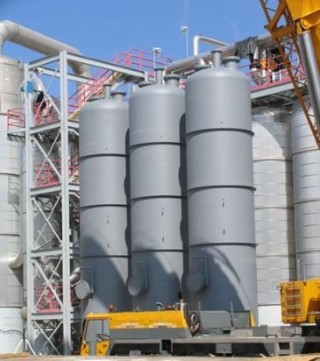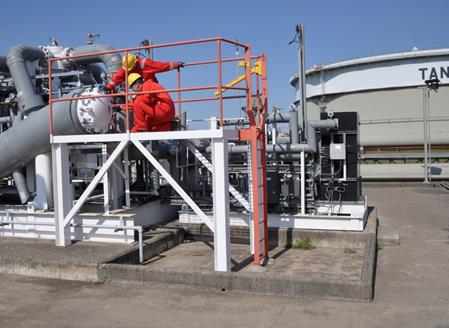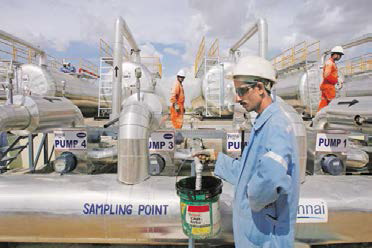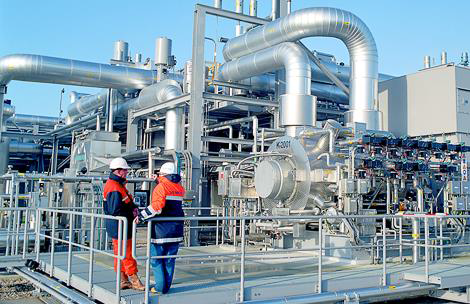COURSE OVERVIEW
PE0225 : Molecular Sieves Dryer-Adsorption

OVERVIEW
| COURSE TITLE | : | PE0225 : Molecular Sieves Dryer-Adsorption |
| COURSE DATE | : | Jun 10 - Jun 13 2024 |
| DURATION | : | 4 Days |
| INSTRUCTOR | : | Mr. Robert Harvey |
| VENUE | : | Al Khobar, KSA |
| COURSE FEE | : | $ 4500 |
| Request For Course Outline | ||
OTHER SCHEDULED DATES
| Date | : | Oct 07 - Oct 10 (4 Days) | Location | : | Doha, Qatar | Classroom Fee (US$) | : | $ 5000 | Course Info |
| Date | : | Dec 09 - Dec 12 (4 Days) | Location | : | Abu Dhabi, UAE | Classroom Fee (US$) | : | $ 4500 | Course Info |
Course Description
This practical and highly-interactive course includes real-life case studies where participants will be engaged in a series of interactive small groups and class workshops. A molecular sieve is a material with pores of uniform size. These pore diameters are of the dimensions of small molecules, thus large molecules cannot be absorbed, while smaller molecules can. Many molecular sieves are used as desiccants. Some examples include activated charcoal and silica gel. Molecular sieves are synthetically produced zeolites (naturally occurring aluminosilicate minerals), and are characterized by pores and internal cavities of extremely uniform dimensions. These crystalline materials have three-dimensional structures based on silicon oxide (SiO4) and aluminum oxide (AlO4) polyhedra. The polyhedra are linked by their corners to produce an open structure with internal cavities in which molecules can be trapped. These materials are engineered so that access to the internal cavities is through specific and uniform sized pores.This course is designed to provide delegates with a detailed and up-to-date overview of molecular sieves dryer-adsorption. It covers the processes and functions of molecular sieves including thermal swing drying and different types and sizes available. The course will also cover the different types used in natural gas drying and how is molecular sieve drier designed. At the completion of the course, participants will be able to identify the potential problems and implement its preventive measures; employ safety during removal of used molecular sieves from the adsorption vessel; apply 3A type acid resistant; H20 removal; regeneration curves; as well as identify liquid carryover problems in dryers and piping of dryers. link to course overview PDF
TRAINING METHODOLOGY
This interactive training course includes the following training methodologies as a percentage of the total tuition hours
LecturesWorkshops & Work Presentations
Case Studies & Practical Exercises
Videos, Software & Simulators
In an unlikely event, the course instructor may modify the above training methodology before or during the course for technical reasons.
VIRTUAL TRAINING (IF APPLICABLE)
If this course is delivered online as a Virtual Training, the following limitations will be applicable
| Certificates | : | Only soft copy certificates will be issued to participants through Haward’s Portal. This includes Wallet Card Certificates if applicable |
| Training Materials | : | Only soft copy Training Materials (PDF format) will be issued to participant through the Virtual Training Platform |
| Training Methodology | : | 80% of the program will be theory and 20% will be practical sessions, exercises, case studies, simulators or videos |
| Training Program | : | The training will be for 4 hours per day starting at 09:30 and ending at 13:30 |
| H-STK Smart Training Kit | : | Not Applicable |
| Hands-on Practical Workshops | : | Not Applicable |
| Site Visit | : | Not Applicable |
| Simulators | : | Only software simulators will be used in the virtual courses. Hardware simulators are not applicable and will not be used in Virtual Training |
RELATED COURSES

PE0010 : Oil Movement, Storage & Troubleshooting
- Date : Nov 10 -Nov 14 / 3 Days
- Location : Doha, Qatar
- Course Details Register

PE0485(OR1) : Crude & Vacuum Process Technology
- Date : Dec 15 -Dec 19 / 3 Days
- Location : Fahaheel, Kuwait
- Course Details Register

PE0169 : Supervision of Gas Plant Operation
- Date : Dec 09 -Dec 12 / 3 Days
- Location : Dubai, UAE
- Course Details Register

PE0114 : Process Troubleshooting and Problem Solving
- Date : Dec 08 -Dec 10 / 3 Days
- Location : Dubai, UAE
- Course Details Register
